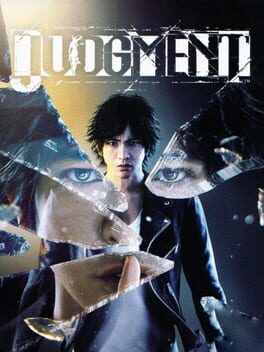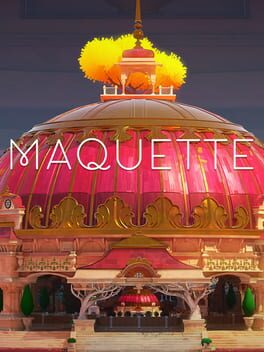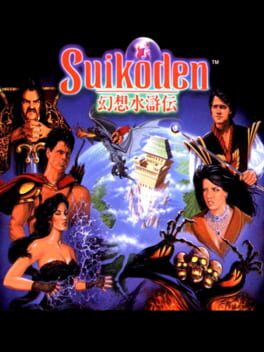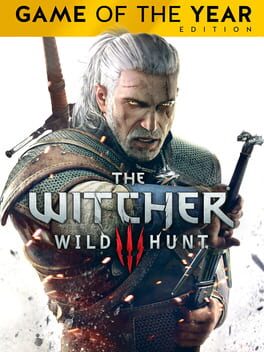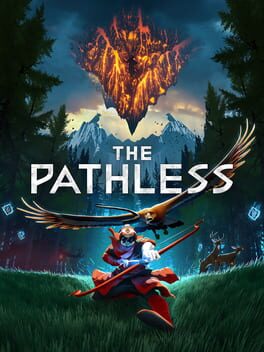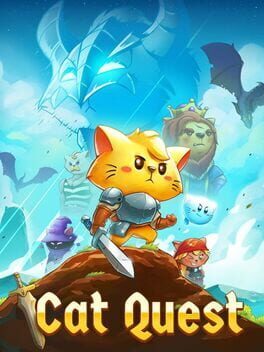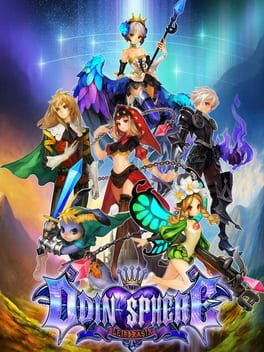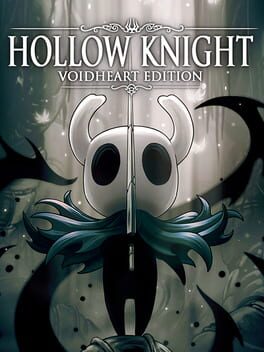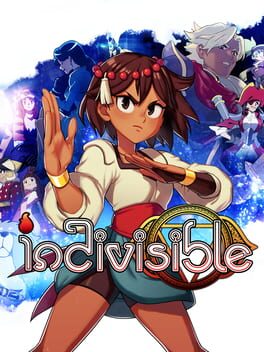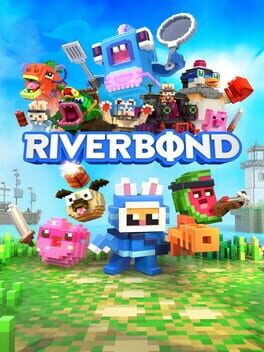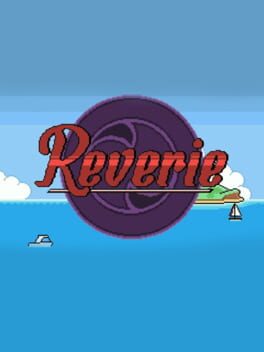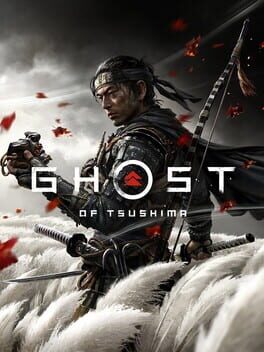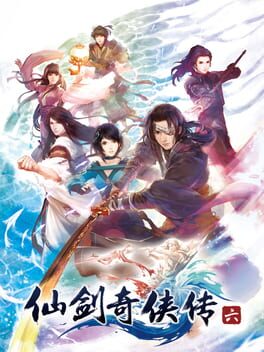2018
Judgment is a story about Yagami, a detective based in the fictional area of Kamurocho in Tokyo, Japan. While working to acquit a person suspected of murder, Yagami gets caught up in a case of serial killings that has much larger implications than it initially appears.
One of the major threads in the story is uncovering the identity of the so called "Mole", who is believed to be responsible for the killings. In my opinion, a good mystery drops the player hints throughout the story so that the most genius ones among us can theoretically solve the mystery before the eventual big reveal and/or a good mystery recontextualizes many of the things they've witnessed earlier on in the story when all the secrets are finally laid bare. While Judgment makes an effort here and the game does drop you hints here and there and you'll end up looking at some of the things a little differently, some of the developments in the story end up not making perfect sense in hindsight, and when the killer's identity is finally revealed, your reaction will likely be "Huh, I guess this person could be the villain" instead of "Of course, this person is the villain! I should have seen it coming."
One of the major threads in the story is uncovering the identity of the so called "Mole", who is believed to be responsible for the killings. In my opinion, a good mystery drops the player hints throughout the story so that the most genius ones among us can theoretically solve the mystery before the eventual big reveal and/or a good mystery recontextualizes many of the things they've witnessed earlier on in the story when all the secrets are finally laid bare. While Judgment makes an effort here and the game does drop you hints here and there and you'll end up looking at some of the things a little differently, some of the developments in the story end up not making perfect sense in hindsight, and when the killer's identity is finally revealed, your reaction will likely be "Huh, I guess this person could be the villain" instead of "Of course, this person is the villain! I should have seen it coming."
2021
Maquette is a puzzle game in which you find yourself in an area within a similar, larger version of said area and also overlooking a similar, smaller version of said area in the middle of the area you start in as if the areas were matryoshka dolls. You solve puzzle by, for example, dropping items into the smaller area after which they appear in your current area as larger versions of themselves. It's fun to goof around with the mechanics and enlarge and shrink various items, which sometimes even get you to places where you're not supposed to go to.
The game also tells a story of a relationship. Sometimes the story and the gameplay form parallels with each other, which is satisfying. The ending is left open to interpretation, and certain things in the game allow the player to draw their own conclusions as to what it all means. Personally, I like to think that a happy ending is implied even if the game throws some gut-punches your way.
The game also tells a story of a relationship. Sometimes the story and the gameplay form parallels with each other, which is satisfying. The ending is left open to interpretation, and certain things in the game allow the player to draw their own conclusions as to what it all means. Personally, I like to think that a happy ending is implied even if the game throws some gut-punches your way.
1995
Suikoden is a game in which a seemingly normal young man gets caught up in a empire-spanning quest to get to the root of the corruption in the empire, and amasses an army of allies in the process.
The game is caught up in a strange limbo where the game itself is on the Playstation but the compact and at times vigourless storytelling is from the earlier eras. Important story moments that would deserve more savouring are sometimes shrugged off with just a few lines of dialogue. Sometimes this leads to unintentionally comedic scenes where a character sacrifices themself in a dramatic fashion to the tune of emotional music, and then a few seconds later the music cuts off and the other characters effectively go "Okay, gg guys! Let's go home and eat lunch." On the other hand, sometimes the game goes out of its way to give emphasis to scenes with animations that are only ever seen once throughout the course of the game.
Ultimately, though, the game balances this out with the brisk pace of the story and its interesting concepts, delightfully expectation-subverting character-driven moments and their hijinks. These just about elevate the game to be more than a companion game to the greater Suikoden 2.
The game is caught up in a strange limbo where the game itself is on the Playstation but the compact and at times vigourless storytelling is from the earlier eras. Important story moments that would deserve more savouring are sometimes shrugged off with just a few lines of dialogue. Sometimes this leads to unintentionally comedic scenes where a character sacrifices themself in a dramatic fashion to the tune of emotional music, and then a few seconds later the music cuts off and the other characters effectively go "Okay, gg guys! Let's go home and eat lunch." On the other hand, sometimes the game goes out of its way to give emphasis to scenes with animations that are only ever seen once throughout the course of the game.
Ultimately, though, the game balances this out with the brisk pace of the story and its interesting concepts, delightfully expectation-subverting character-driven moments and their hijinks. These just about elevate the game to be more than a companion game to the greater Suikoden 2.
The Witcher 3 is a grandiose and emotional story of a man looking for his daughter. Because finding said daughter takes time and a man's gotta sit down and rest every now and then, in a more immediate sense The Witcher 3 is a game about Geralt stumbling on all of his old friends who all happen to be in the same corner of the world at the same time and going for a drink and catching up with all of them.
You may think that this is a role-playing game because of the RPG tag but actually the G in the RPG here stands for Geralt, so you're Role-Playing Geralt, who is, lucky for you, one of the most terrific video game protagonists that you'll ever meet (you're also him in this game!)
The writing is all-around great here, which makes even all the side-quests worth experiencing too. Many times the smaller stories will surprise you and blow your mind. Different outcomes in quests based on your choices mean there's plenty of replayability here too.
You may think that this is a role-playing game because of the RPG tag but actually the G in the RPG here stands for Geralt, so you're Role-Playing Geralt, who is, lucky for you, one of the most terrific video game protagonists that you'll ever meet (you're also him in this game!)
The writing is all-around great here, which makes even all the side-quests worth experiencing too. Many times the smaller stories will surprise you and blow your mind. Different outcomes in quests based on your choices mean there's plenty of replayability here too.
2020
The Pathless is basically Breath of the Wild but with very little combat and on a smaller scale. Not literally on the latter point, though, because the size of the world is quite huge, and there is an astounding amount of verticality in here too, but in terms of game length. The sense of discovery, satisfying exploration and traversing, and emergent puzzles are all here, though. In your travels you may come across, for example, a formation of three rocks that stand out from their surroundings, and if you perform a certain action sequence, you will be rewarded with an exp increase to your flight ability. The puzzles often successfully place their trust in the player's own intelligence instead of guiding them every step of the way, and you never feel like the game doesn't give you enough to go off of. Perhaps the weakest part of the gameplay is when the game thrusts you into traditional 3D platformer like arena battles with the boss enemies. The gameplay there is serviceable enough and occasionally results in cool moments, but as the game wasn't built for those encounters specifically and lacks commands like dodge roll and guard, you sometimes can't help feeling like you're playing an action game where the devs forgot to map half the buttons.
There is a story in here too about paths in the metaphysical sense, and all of it ties together nicely with the theme and the gameplay of the game. For this type of game that is in the same spiritual continuum with games like the Shadow of the Colossus, Journey, Abzu, and the likes, the story is surprisingly overt rather than subtle. You can get a very good idea of what's going on in the game by reading the various pieces of lore scattered about, and the black and white style story introduces a clear villain that you, the good and pure protagonist, must defeat. While the story is satisfying with its occasional highpoints, ultimately the game is at its most clever when it leans on its organic puzzle gameplay and the emergent side of the story instead of the story that's conveyed through the cutscenes.
On the audio side, your mileage may vary, but fans of Austin Wintory may be disappointed that this game doesn't have the kind of killer track that would change your life and that you'd introduce to your parents, like Journey had "Apotheosis" and "I was Born for This", and Abzu had "Their Waters Were Mingled Together." Sure, some of the field tracks will wiggle into your ears in a good way but mostly the soundtrack stays in the background. Some of the musical choices take some digesting, though, as the whimsical string plucking of the boss themes is often in a weird contrast to the demonic imagery and presence of the bosses themselves. The Meditations soundtrack the man himself has put together is good for studying and working, though!
There is a story in here too about paths in the metaphysical sense, and all of it ties together nicely with the theme and the gameplay of the game. For this type of game that is in the same spiritual continuum with games like the Shadow of the Colossus, Journey, Abzu, and the likes, the story is surprisingly overt rather than subtle. You can get a very good idea of what's going on in the game by reading the various pieces of lore scattered about, and the black and white style story introduces a clear villain that you, the good and pure protagonist, must defeat. While the story is satisfying with its occasional highpoints, ultimately the game is at its most clever when it leans on its organic puzzle gameplay and the emergent side of the story instead of the story that's conveyed through the cutscenes.
On the audio side, your mileage may vary, but fans of Austin Wintory may be disappointed that this game doesn't have the kind of killer track that would change your life and that you'd introduce to your parents, like Journey had "Apotheosis" and "I was Born for This", and Abzu had "Their Waters Were Mingled Together." Sure, some of the field tracks will wiggle into your ears in a good way but mostly the soundtrack stays in the background. Some of the musical choices take some digesting, though, as the whimsical string plucking of the boss themes is often in a weird contrast to the demonic imagery and presence of the bosses themselves. The Meditations soundtrack the man himself has put together is good for studying and working, though!
2017
Cat Quest is a fun little action RPG. The loot grind and the level grind are satisfying enough to keep you going, but the fact that the main story is somewhat minimal and requires you to grind a lot of side-quests may mean that the game won't hook you the same way games with more meaningful main quests might. The story does eventually start to go in an interesting direction, though, and once it gets to that point, you'll want to see the game through till the end. The game is worth booting up just to appreciate the pop-up book like aesthetic of the game's world for a bit too.
This game is too long for its own good. To get to the ending, you will need to essentially play the same game with 5 different characters, and chances are you are mentally done after just one. There's also something discouraging about having to start from level 1 with each new character over and over again when you've just finished a playthrough with a lvl 70 something character. Another unfortunate consequence of all this is also that there is a high chance you'll be forced to play with a character or two whose gameplay you're just not feeling. Thankfully you can always switch the difficulty to easy if you want to speed things up by a few hours.
The gameplay is good. It's satisfying to chain different skills together to juggle an enemy for a long period of time, or to cause a massive barrage of explosions and damage indicators popping up on the screen by casting spells and using items back to back in a quick succession.
The prose is also good when it's good, and I'm glad to have got to the ending to see how the game wrapped up everything. Some of the story moments will also blow your mind to a degree when things that were foreshadowed earlier come together in a logical manner. However, the payoff of the ending struggles to be substantial enough to justify the time and the amount of repetitive gameplay needed to get there. Come for the gorgeous art and stay for it too, I guess.
The gameplay is good. It's satisfying to chain different skills together to juggle an enemy for a long period of time, or to cause a massive barrage of explosions and damage indicators popping up on the screen by casting spells and using items back to back in a quick succession.
The prose is also good when it's good, and I'm glad to have got to the ending to see how the game wrapped up everything. Some of the story moments will also blow your mind to a degree when things that were foreshadowed earlier come together in a logical manner. However, the payoff of the ending struggles to be substantial enough to justify the time and the amount of repetitive gameplay needed to get there. Come for the gorgeous art and stay for it too, I guess.
2019
2019
2018
Final Fantasy VII Remake is at its strongest when it is unapologetically Final Fantasy VII and at its weakest when it tries to be a modern game. The scenes that were magical in the original are mostly even better here and crafted with love. Every boss battle in the game is a spectacle you'll be looking forward to. The materia system is as enjoyable as ever. The battle system has enough depth to accommodate expert-level play. Cloud ends up having a good character arc, even though it is a little hard to buy into him in the beginning.
However, the new story content is 50-50 in that 50 % of it is good and welcome, and the other 50 % will make you roll your eyes. The side quest content is also throwaway checklist fluff, a departure from the organically integrated secrets of the PS1 era, even though the optional battles you'll discover are good stuff. The game could have also used a little bit of "less is more" in regard to the length of the dungeons. Many times it feels like the dungeons you visit go on for a little too long in order for the game to meet some arbitrary hour count to prove that the first act of the original game can be a full-length game. It also doesn't help that where as in other JRPGs you'll visit ancient temples, magical woods, floating islands, ride on the back of creatures the size of a mountain etc., in Final Fantasy VII Remake you'll visit such exciting locations as a slum, a maintenance corridor, a power plant, a garbage dump, a sewer, another garbage dump etc. Hmm... no, wait! That was just a different corner of the same garbage dump. Sorry, only one garbage dump here!
The storytelling also falters a little towards the end when Aerith starts spouting incomprehensible mumbo-jumbo and the other characters are nodding along as if they have a clue as to what the hell she is on about. The ending itself will scare some people off too but it also leaves interesting potential for the sequels. My personal GOTY of 2020.
However, the new story content is 50-50 in that 50 % of it is good and welcome, and the other 50 % will make you roll your eyes. The side quest content is also throwaway checklist fluff, a departure from the organically integrated secrets of the PS1 era, even though the optional battles you'll discover are good stuff. The game could have also used a little bit of "less is more" in regard to the length of the dungeons. Many times it feels like the dungeons you visit go on for a little too long in order for the game to meet some arbitrary hour count to prove that the first act of the original game can be a full-length game. It also doesn't help that where as in other JRPGs you'll visit ancient temples, magical woods, floating islands, ride on the back of creatures the size of a mountain etc., in Final Fantasy VII Remake you'll visit such exciting locations as a slum, a maintenance corridor, a power plant, a garbage dump, a sewer, another garbage dump etc. Hmm... no, wait! That was just a different corner of the same garbage dump. Sorry, only one garbage dump here!
The storytelling also falters a little towards the end when Aerith starts spouting incomprehensible mumbo-jumbo and the other characters are nodding along as if they have a clue as to what the hell she is on about. The ending itself will scare some people off too but it also leaves interesting potential for the sequels. My personal GOTY of 2020.
2020
A Ubisoft game that is not made by Ubisoft with a Feudal Japan coating that manages to cater to many of your samurai and ninja fantasies. The story is surprisingly good here with some occasional emotional gut-punches thrown in and the ending is well worth experiencing too, although the storytelling itself falls into the usual trappings of the open-world genre with, for example, the characters conveniently appearing exactly where the story needs them to be with little communication between them. Personally, this was the prettiest game with the best art direction I played in 2020, although some people say it looks too cartoony, so your mileage may vary. The load times are incredibly fast on the PS4 too.
A carefully crafted story that manages to go where video game sequels often fail to go, which is to being just as meaningful as the first part in the series. Act 2 is a hit or miss, and your enjoyment will depend on how you feel about the characters, one of whom is a hardened queue-jumper. Roughly 10 hours out of my 32 hour playthrough were spent hugging the walls scouring for ammo and the game's various useless collectibles.
Awesome story and music, and some very imaginative fantastic locales. The game also offers a peek into some exotic parts of Chinese culture and mythology, which feels fresh. The gameplay is occasionally fun but on the whole terrible and buggy, and you will need a lot of patience get through this game on the PS4, because doing certain things will make the game crash every time. I hear the PC version is better in this regard. A game I wish more people played but one that I can't recommend to anyone unless they know what they're getting into.
